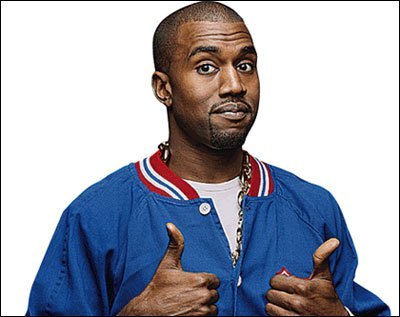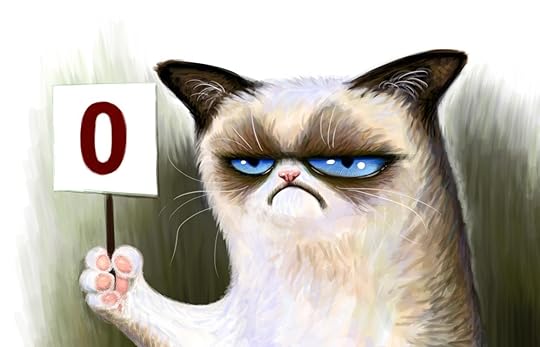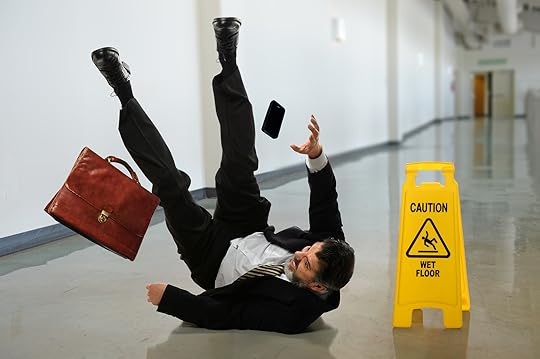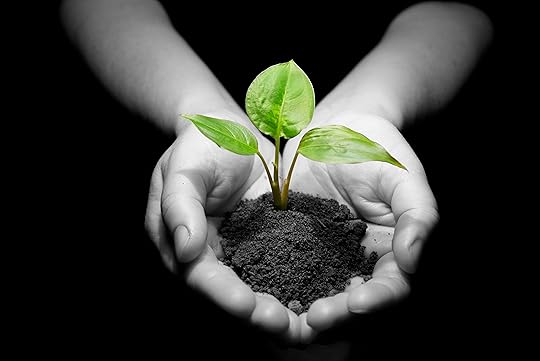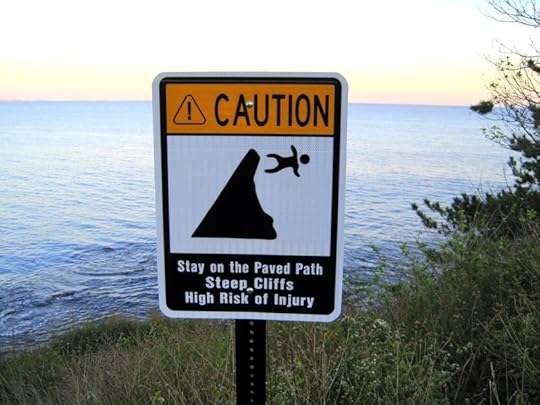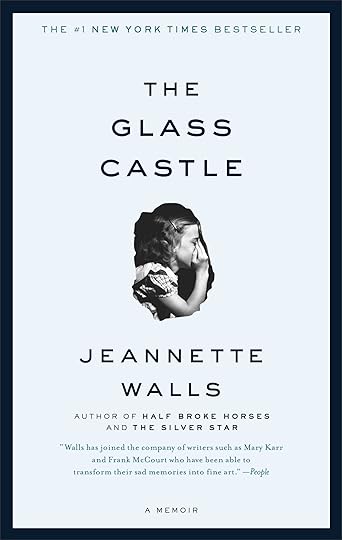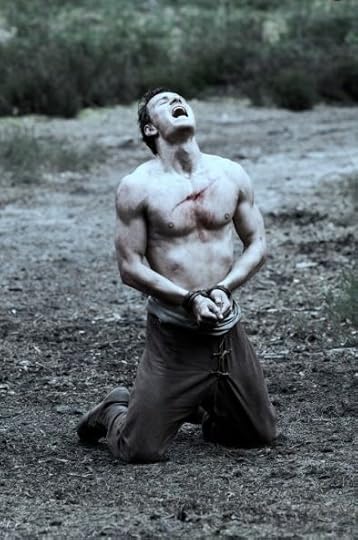Richard Harris's Blog, page 24
September 6, 2017
Quote of the Day
‘Sometimes people write novels and they just be so wordy and so self-absorbed. I am not a fan of books. I would never want a book’s autograph. I am a proud non-reader of books.’
– Kanye West
Should you find yourself humping today (i.e. working on a Wednesday), you’re probably saying to yourself, I need a sensible dose of Kanye West to get me through this slog. If you did indeed say that to yourself, that is fine and dandelions. You deserve it.
In the spirit of keeping things light as you hump your way through your day, I present a man who is so linguistically talented that he elevates himself past a mere Quote of the Day. Transcending all rules of logic, grammar, punctuation, diction, syntax, courtesy, and any other telltale sign that might make him remotely like the rest of us, I present nine more quotes that are sure to have you reach for the stars on the back of a humpback whale…
1. ‘Whoa by 50 percent [I am more influential than] Stanley Kubrick, Apostle Paul, Picasso… f****** Picasso and Escobar. By 50 per cent more influential than any other human being.’
2. ‘When you’re the absolute best, you get hated on the most.’
3. ‘My goal, if I was going to do art, fine art, would have been to become Picasso or greater… That always sounds so funny to people, comparing yourself to someone who has done so much, and that’s a mentality that suppresses humanity…’
4. ‘One of my biggest achilles heels has been my ego. And if I, Kanye West, can remove my ego, I think there’s hope for everyone.’
5. ‘I don’t think there’s a living celebrity with more weapons formed against him, but I don’t think there’s one more prosperous.’
6. ‘So, the voices in my head told me go, and then I just walked up, like, halfway up the stage… But I just didn’t really want to take away from Beck’s moment, or the time he’s having to talk. It was kind of a joke – like the Grammys themselves.’
7. ‘I am God’s vessel. But my greatest pain in life is that I will never be able to see myself perform live.’
8. ‘I think what Kanye West is going to mean is something similar to what Steve Jobs means. I am undoubtedly, you know, Steve of internet, downtown, fashion, culture. Period. By a long jump. I honestly feel that because Steve has passed, you know, it’s like when Biggie passed and Jay Z was allowed to become Jay Z.’
9. ‘I will go down as the voice of this generation, of this decade, I will be the loudest voice.’


Quashing Your Inner Critic, Growing from Self-Reflection
Last month, Winning the Brain Game author and innovation strategist Matthew E. May (@MatthewEMay) wrote an interesting piece about something every single one of us suffers from in some way and, usually, at some point every day: giving in to that self-critical inner judge and not lending our thoughts, actions or forms of expression any real validity. Titled “3 Simple Steps to Silencing Your Inner Critic: Neuroscience explains it, but psychology offers the fix.” I know I’m not alone here when I say this, but anytime I see the words “neuroscience” and “psychology” in the same sentence, I tend to go a little bit cuckoo for Cocoa Puffs.
Although Mr. May references a business scenario, this inner critic is with us all the time, whether we’re shopping, cooking, eating, working, speaking to a stranger – even when we’re being amorous. (Okay, okay, okay. I have to admit I’m exempt from that final category.)
Here’s the neuroscience angle, per Mr. May’s post:
“fMRI studies have shown that our threat-protection system is triggered even when there is no actual external threat, but just us being self-critical. Researchers at Kingsway Hospital in the UK concluded that if we are overly self-critical, we may attack ourselves, put others down, or seek some form of escape to, as they put it, “flee from the knowledge of our own faults.”
I’m obviously biased when I say this, but I really don’t think there is another industry that suffers from the inner critic implosion on a more regular basis – and more spectacularly self-harming way – than art. It’s one thing to doubt your business model, your scientific hypothesis, your argument in court, or your assessment of where to plant that new tree in your backyard, but as most artists will tell you, the critical difference is that to be successful as a painter or writer, for example, your work and its very success will most likely be judge by the world in terms of how much of your soul you have put on display for everyone to see in its most vulnerable, innocent and naked form. It’s an overwhelmingly daunting feeling, and I say that from much experience over many years.
But, just as Matthew E. May promised in his title, psychology has an answer. Sweet! I love answers to problems I haven’t even asked a question about!
After consulting with a professor of psychology at HARVARD, Ellen Langer (@ellenjl), the HARVARD professor said there are three steps to addressing this in a positive and constructive way.
1) Understanding that doubting yourself involves making an unwarranted assumption in your head. Something bad will definitely happen if I follow through with this idea of mine.
2) Flip the logic here and come up with a few reasons why your idea might not be rejected. By doubting your doubt you open the door to the possibility that it might not be such a crazy idea after all. It’s possible people will hate it, but equally possible that people will embrace it. I can’t predict which one it will be.
3. Come up with a few reasons that could explain how good things will happen even if your idea is rejected. Like if you play that demo for a record executive and get panned, or patent your technology and it goes on to sell exactly 5.6 units in the next six months, perhaps you’ll realize something you hadn’t considered before or meet someone during this process who can further your idea or initiative in a way you hadn’t thought of previously. Essentially, as long as I can put my fragile ego aside for a moment, I’ve got nothing to lose by doing this and the world to gain.
I’ll close this post of my mine by bringing up one thing which Mr. May does not address: self-loathing. There is a very fine line between being self-critical and self-loathing. In the case of the former, you necessarily grow because at least you have been constructive in your approach; with the latter, you will do nothing but bat yourself down the ladder of life one more rung and not contribute to bettering your idea, your confidence or your self-worth.
As a professor from HARVARD (born in Canada?) might say at this point, “How do ya like ‘dem Havad apples, eh!”


September 5, 2017
A Filmmaking Workshop for Youth
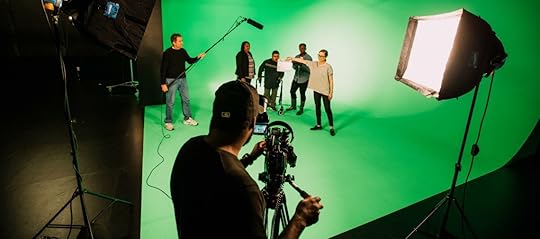
Per the announcement made by @TorontoArts about the NEWCOMER FILMMENTOR program offered by @LIFTfilm:
A workshop series for newcomers, ages 18 – 29, who are interested in learning the craft of filmmaking. Apply today!


When Light Taketh, Not Giveth, Life
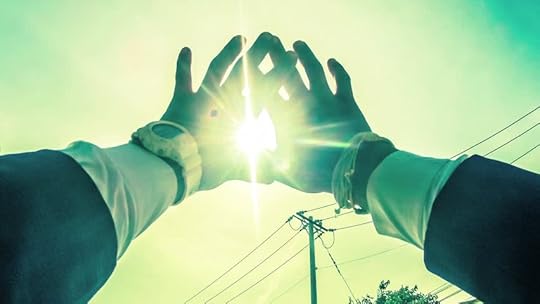
“Only now I had a sense of grace, which means just seeing, accepting, knowing, holding everyone as they are. Just as they are. Then you become the sky that holds every storm, and transforms it into the rain that waters the soil of the garden.”
In a piece titled “Touching Grace: A Little Closer to the Point of It All,” Umair Haque (@umairh) shares some very revelatory and humbling thoughts. If you can look past the typos and grammatical mistakes (sorry, but as the self-proclaimed “most popular writer at Harvard Business Review,” I would hope he proofreads his material before hitting PUBLISH online), you’ll get a lot out of his post and his backstory.
Some years ago, Mr. Haque was told he was going to die of an apparently invisible, nameless disease. As one might expect, he went through a wide range of emotions, from fear and shock to acceptance and, finally, live-in-the-moment bliss. It was only when he came to this last state of mind that he found love (or as he put it, “When we’re happy, we’re open. I was open, humble, grateful, and so love found me.”) and he discovered that it was the source of all life on Earth that he was dying; the sun was literally killing him. A very rare genetic disorder caused by the sun’s rays had led to organ failure, among other maladies, throughout his body.
Yet Mr. Haque was clearly a fighter and so used this momentary hiccup on the highway of life to reconnoiter his personal mission, his hopes and desires, and how he would move on knowing that he was, in a sense, a kind of vampire. Although Mr. Haque sums up the world today with the word “hostility,” it seems he can sum up his own life in one word as well – “survivor” – and his story is nothing short of compelling.


September 4, 2017
Me, Human. Me, Dumbass.
Call them mistakes. Call them errors. Call them whatever you want (except late for dinner, of course), but the point is we do some pretty stupid things every year to injure ourselves in what many would consider “safe” situations/conditions.
Even though countless people suffer from aviophobia (fear of flying), your chances of being in an airplane accident and hurting yourself are effectively nil. Alternatively, crossing the street at a crosswalk can be treacherous; thirty-eight percent of all pedestrian accidents happen there!
Writing for The New Yorker, Joshua Rothman wrote a thoroughly interesting/frightening piece on the role the mind plays when we make mistakes, errors, or otherwise follow through with dumbass decisions that inevitably lead to us harming ourselves. Titled “Be Careful! Your Mind Makes Accidents Inevitable,” Mr. Rothman goes over some strange, funny and scratch-your-head statistics from noted psychologist and safety expert Steve Casner and his book Careful: A User’s Guide to Our Injury-Prone Minds.
As the most highly developed species on this planet, we sure as shit make some questionable assumptions and decisions in our lives. Mr. Casner actually argues that we are “in the midst of a safety crisis.” For example, from 1918 to 2000, the accidental death rate dropped from about one in 20 people to one in 40 people. This was largely the result of better education, public safety campaigns, stricter laws, innovations and regulations.
However, since 2000 that figure has been on the rise; more of us are dying accidently than did 20, 30 or even 50 years ago when people like Don Draper were drinking and driving, smoking indoors (and on airplanes!), not wearing seatbelts in any vehicle, swimming in restricted areas for fun, and a whole other bunch of stuff that someone today would freak out about if asked to do.
Steve Casner has a few theories as to why this is, including “risk homeostasis” (the tendency to take more risks once we feel safer), a surge in DIY go-getters (you think that crunching stock market numbers all week on a computer will prepare you to properly use a chainsaw next weekend?), constant imaginative behaviour (why can’t I use the butt-end of a screwdriver to break up the ice in my freezer?), and the “social appeal of the daredevil” (how many chicks are going to dig my gear if I can Frogger through traffic in midtown Manhattan!).
Finally, there are lots of weird stats involved in Mr. Casner’s book that should give us pause and make us think the next time we want to do something out of the ordinary for no real purpose. These include:
40,000 Americans are sent to the ER annually after wounding themselves with their washing machines.
In 2010, 51,000 car crashes and 440 deaths resulted from mattresses falling off car roofs and into traffic.
According to the American Cancer Society, an untold number of Americans die every year from cancer because they believe their symptoms “will resolve themselves with time.”
Many of the 140,000 people who fall off ladders every year do so because they step on the rung labelled “Not a step.”


September 3, 2017
Quote of the Day
“To love life, to love it even
when you have no stomach for it
and everything you’ve held dear
crumbles like burnt paper in your hands,
your throat filled with the silt of it.
When grief sits with you, its tropical heat
thickening the air, heavy as water
more fit for gills than lungs;
when grief weights you like your own flesh
only more of it, an obesity of grief,
you think, How can a body withstand this?
Then you hold life like a face
between your palms, a plain face,
no charming smile, no violet eyes,
and you say, yes, I will take you
I will love you, again.”
Ellen Bass (b. 1947)
I know what you’re thinking – there is a considerable amount of fromage dripping from this poem. True, but always remember that a little cheese never killed anyone. In fact, taken in moderation, like, say, one large portion of poutine a month, it’s actually quite healthy for you.
This Quote of the Day comes from the award-winning American poet Ellen Bass, who is also the co-author of the self-help book The Courage to Heal: A Guide for Women Survivors of Sexual Abuse.
What I like about this poem is that it reminds us not to glamourize life when we are stuck in one of its many sinkholes. Acceptance, hope, life and love can coalesce, just not always in that romantic way we like to think when things seem shitty to quite shitty. Sometimes it’s best to simply reexamine life for what it is, a Plain Jane face lacking any charm or sparkle to the eye. But re-embrace it, we do, because it is our life. And as William Ernest Henley reminded us so eloquently almost a century and a half ago:
It matters not how strait the gate,
How charged with punishments the scroll,
I am the master of my fate,
I am the captain of my soul.


September 2, 2017
The Useless Agony of Going Offline
His title. Not mine.
Last year, Matthew J.X. Malady wanted to try an experiment: He wanted to go dark for 72 hours. No phone. No computer. No tablet. No social media. No nuttin’, honey. Part of the impetus for his project came from reading about a man who literally walked off a cliff to his death because he was so glued to his electronic device that he didn’t notice he had come to a precipice and there was no fence to stop him. He tumbled more than 40 feet to the jagged rocks below him.
For Mr. Malady, burning questions included, though were not limited to, (a) could he do it?; and (b) what effect would this have on him and his hardwiring. Upon completion of this experiment, Mr. Malady then wrote about his experience in a piece for The New Yorker titled “The Useless Agony of Going Offline.”
Did Mr. Malady succeed? Did he shrivel up and die before the third day? Did his head turn into a multi-coloured pumpkin? These are all fine and fair questions but will have to wait until I wax poetic about this whole ADHD/wired-all-the-time tendency that many of us have adopted not only willingly but wholeheartedly. When did we cross the proverbial Rubicon of Internet-based technology?
Technically speaking, I signed up for my first electronic mail account in 1996 through my university. I never used the account once. It wasn’t until moving to Korea (No, not North Korea) in 1997 that I set up a real e-mail account through…Hotmail (groan).
I like graphs, charts, timelines and the like, so let me present mine here and see how it stacks up against your own experience with this wonderful world called the intercyberweb.
1996 Set up my first email account
1997 Began regular use of commercial email
1998 Wrote and received my last handwritten letters to friends and family
2000 Bought my first computer (a Commodore 64 doesn’t count, right?)
2000 Wrote my first story on a word processing program called Word
2001 Began using my computer for employment-related tasks
2004 Became a full-time freelancer and depended on my laptop 24/7 for work
2007 Joined the Gmail Revolution
2007-09 Travelled five continents over 24 months, using my laptop for work in locations that spanned the border of Uganda and the DRC, the beaches of Fiji, the bridges of Venice, the Black Sea port of Varna, the jungles of Vietnam, the coffee shops of New York City, and 28,000 miles of airplane travel time.
2009 Signed up for Facebook
2013 Designed my own blog and began posting regularly
2014 Joined Twitter
2017 Joined Instagram
I suppose when I write it down like that, I’d have to say my “Rubicon moment” had to be 2004, when the almighty computer and being online was directly tied to my ability to pay the rent. Over that time, I think I’ve gone through something like one desktop and 10 laptops, most of them destroyed by attrition rather than viruses. The longest I’ve gone without using any Internet-related technology is three weeks, though I didn’t have much choice as I was travelling through India and Nepal and it was 1999, so the technology wasn’t so ubiquitous in remote parts of Kashmir and Pokhara.
More recently, I went two full days without checking emails, using my phone, surfing the Internet or looking in on my social media sites. I considered that an accomplishment. (Does that make me a slave to the Internet? Perhaps Brian Ferry can rework his 1985 classic and call it “Slave to the Net.”)
Anyway, back to Mr. Malady’s experiment. Did he indeed self-combust in fiery flames after the 72nd hour? Here’s what he had to say about finishing his pet project:
“At the end of the experiment, I wasn’t dying to get my phone back or to access Facebook. I just wanted to get back to being better informed. My devices and the Internet, as much as they are sometimes annoying and frustrating and overflowing with knuckleheads, help me to do that. If getting outside and taking walks, or sitting in silence, or walking dogs, or talking with loved ones on the phone got me to that same place, I’d be more than happy to change things up.”


September 1, 2017
The Glass Castle: A Better Movie or Book?
I experienced a very rare feeling last night after stepping out of the movie theatre: a film adaptation of a book had actually matched the quality of the literary effort. Seriously, how often do we find ourselves saying, Oh my gawd! The book was soooooooo much better!
Well, not so with Jeannette Walls’s The Glass Castle. I read her memoir in my book club a few years ago and it was one of the few times we had a unanimous decision from the members – it was a great, heartfelt, well written, highly memorable story.
Thing is, so was the movie. However, I have to qualify that by adding one thing. Woody Harrelson stole the show and put on arguably his best performance since Natural Born Killers. I mean, really, you know you’ve got a real gift when you play a complete asshole whom everyone in the audience wants to kill and yet you endear yourself to these same people through your vulnerability and humanity. That was the power of Woody’s performance in this crazy story of Ms. Walls’s nomadic upbringing.
So, long of the short, read the book and go and see the movie. Or vice versa. It really doesn’t even matter in which order you do this. You’ll simply be happy for both experiences.


TAC Visual Arts Program Grants
Per the Toronto Arts Council’s website:
The Visual Artists Program provides support to visual artists who have a professional independent art practice for the creation/production of new work or the completion of works in progress.
Funds are intended to cover direct costs of creation/production, subsistence and materials. Visual Arts includes drawing, painting, sculpture, photography, mixed media, printmaking, bookworks, performance art, installation and fine crafts.
Click here for more information and keep in mind the application deadline is September 14, 2017.


The Wholeness of Friendship, The Imperfection of Loss
“In each of my friends there is something that only some other friend can fully bring out. By myself I am not large enough to call the whole man into activity; I want other lights than my own to show all his facets. Now that Charles is dead, I shall never again see Ronald’s reaction to a specifically Caroline joke. Far from having more of Ronald, having him ‘to myself’ now that Charles is away, I have less of Ronald. … We possess each friend not less but more as the number of those with whom we share him increases.”
— C.S. Lewis on the death of Charles Williams and J.R.R. Tolkien’s grief
I like people thoughtful people. Not thoughtful in the sense of being kind – although that’s also nice to be around – but thoughtful in the sense that they take the time to consider some of life’s more difficult, morbid or unpleasant issues. I believe losing a close friend, especially one you look up to as a mentor, qualifies for this category of thoughtfulness.
In a post wrought with naked emotion, a clearly devastated Benjamin Sledge (@SledgeHS) wrote about this subject in a piece called “The Beautiful Awful of Grief and Loss.” He did so not by wearing his heart on his sleeve; his words bleed off the page with sincerity, his heart firmly sutured into his skin and soul.
To quote part of Kahlil Gibran’s own thoughts on friendship, the great sage of the 20th century had this to say: “Your friend is your needs answered…And when he is silent your heart ceases not to listen to his heart; For without words, in friendship, all thoughts, all desires, all expectations are born and shared, with joy that is unacclaimed…And let there be no purpose in friendship save the deepening of the spirit.”
Death sucks. Losing friends stinks. Cancer’s a fucker. Put them all together in one package and there’s not much more to do than find an outlet for your emotions. Otherwise, it’ll surely beat you down to a pulp and rob you of all hope just as sure as shit the sun will rise in the east and set in the west tomorrow.
So to you, Mr. Sledge, I say good on ya. While I’m sorry for your loss, I believe that by sharing your experience it will only serve to help you – and all those people whose lives your friend touched – plant new roots in the soil of life, knowing that, as always, the spirit of the dead will remain in the memory of the living.
And just as storyteller, veteran and creative liar Benjamin Sledge ended his piece, I’ll also quote the American writer Anne Lamott, who once wrote:
“You will lose someone you can’t live without, and your heart will be badly broken, and the bad news is that you never completely get over the loss of your beloved. But this is also the good news. They live forever in your broken heart that doesn’t heal back up. And you come through. It’s like having a broken leg that never heals perfectly – that still hurts when the weather gets cold, but you learn to dance with the limp.”



